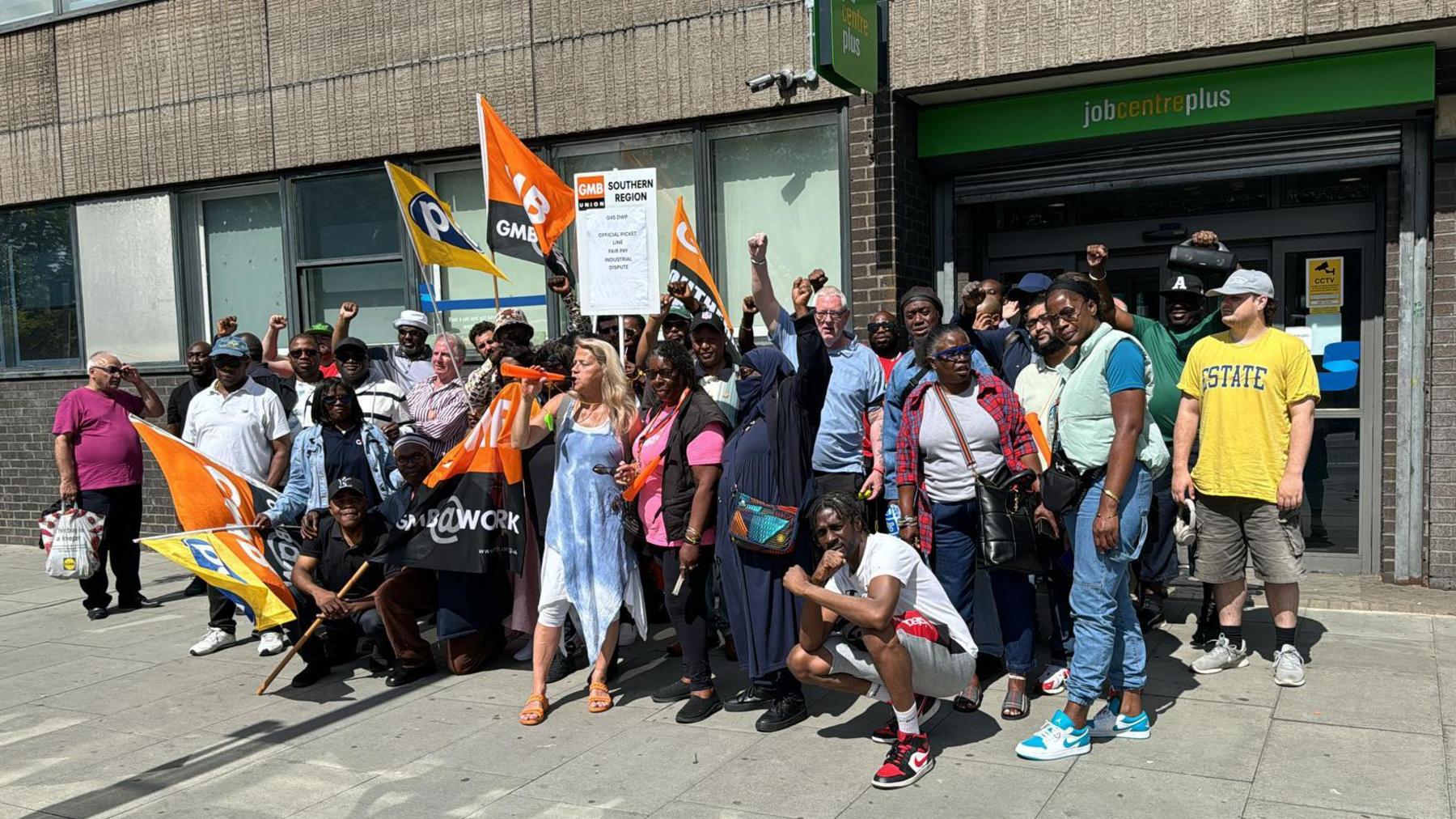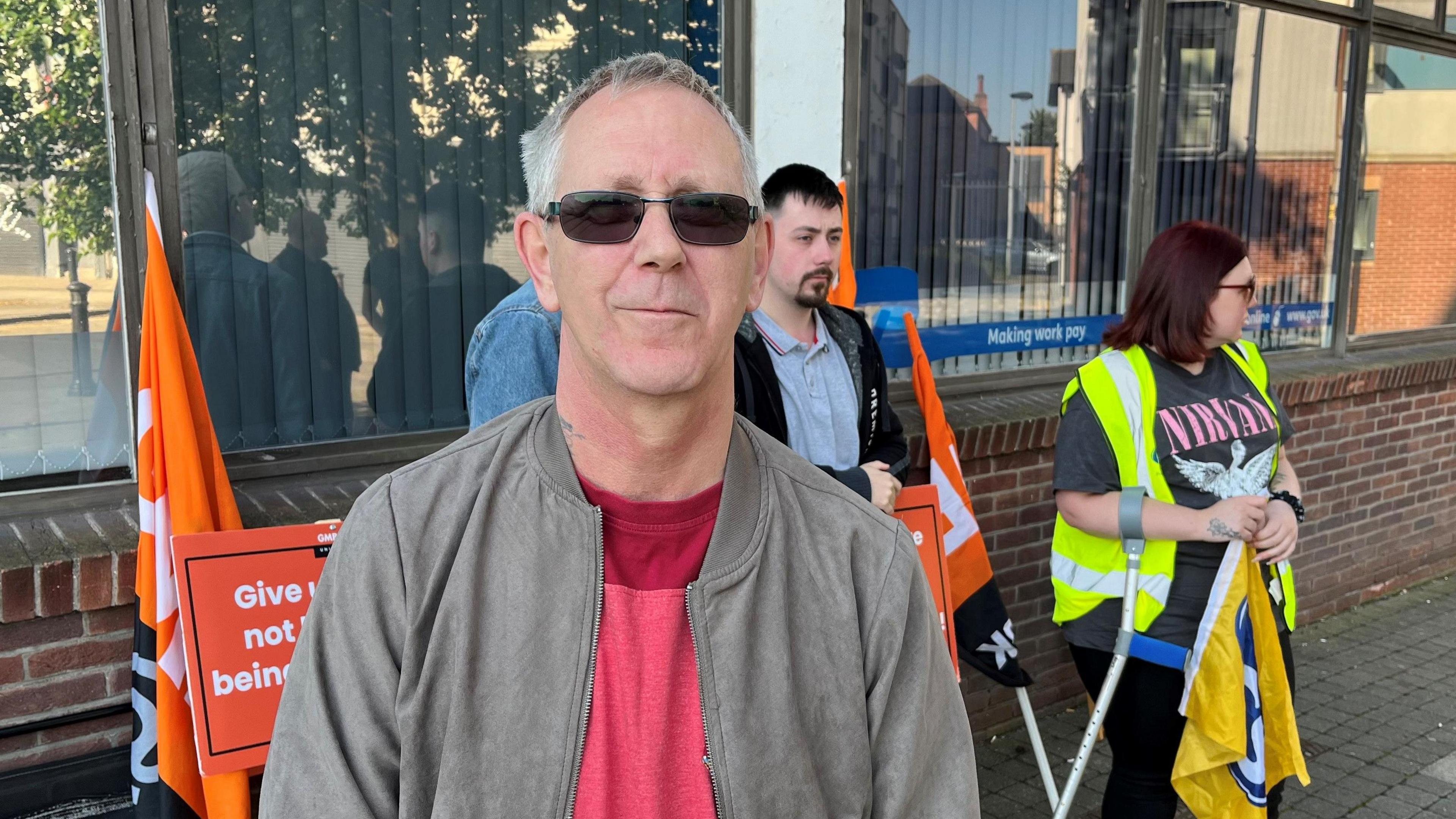Jobcentre security staff strike over 'poverty' pay

Jobcentre Plus security staff will walk out
- Published
Jobcentre Plus security staff in Sheffield have gone on strike this week over "poverty" pay that they have said makes them "go hungry".
The UK-wide industrial action involves 1,500 security guards, including those working at the Cavendish Court and Bailey Court centres as part of a contract between the Jobcentre and G4S.
The GMB union representing the G4S workers said that 90% of them were now paid only the minimum wage.
G4S said their pay offer to staff was "above" both minimum wage and the rate of inflation.
Mass rally
Security guards involved in the dispute will take part in a mass rally at the Supreme Court on Wednesday 17 July and march to both the Department for Work and Pensions and the G4S head office.
The security contractor has also been accused by the trade union of paying agency staff more than their own employees.
Eamon O'Hearn from GMB said: "The DWP and G4S have happily overseen hundreds of days lost to Jobcentre closures, and security guards go hungry on poverty pay."
"Things have changed and these workers will not give up their fight.
"Now G4S are paying more for agency staff than their own guards to break the strikes. DWP has to do the right thing and step in and end this long-running dispute.”
Unions also warned that the new government would be faced with more Jobcentre closures if the dispute was not resolved.
A G4S spokesperson said: "Our dedicated security colleagues do a great job and support an essential public service, sometimes in difficult circumstances. The majority of our staff have not been on strike."
The company said it had made 12 pay offers to GMB, of which only two had been taken to ballot.
The BBC understands that benefits, state pension and telephone services are not affected by the action and has approached the DWP for comment.
G4S added: "We urge the union to present our offer to our employees, which is above minimum wage and inflation."
- Published21 June 2024
